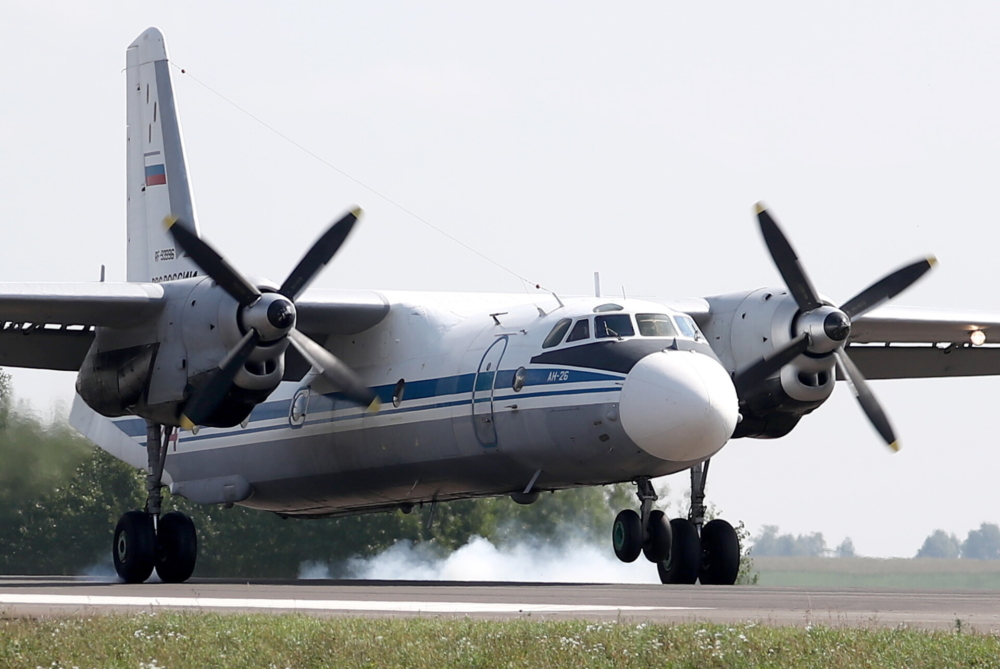South Sudan has had a ban in place for the use of some Antonov cargo planes since early November, following a number of fatal accidents. But the speed at which the ban was enacted, and the dependence of the country on these types of aircraft for transporting essential goods, has left air operators with nowhere to go. They are calling on the government to rescind the ban, or to help with the skyrocketing costs of leasing different types of cargo planes.

Lift the ban on Antonovs
A union in South Sudan is urging the government to rescind the ban on certain Antonov cargo planes. The South Sudan Airline Operators Union (SSAOU) cites a looming humanitarian crisis in the Greater Upper Nile and Barh El Ghazal areas, saying it’s impossible to get critical goods to the people in those locations.
Kat Monyjok, who is the Secretary-General for information at SSAOU (as well as CEO and MD of An-26 operator Optimum Aviation), told Radio Tamazuj that,
“The messages that we are receiving from the areas outside Juba such as Yida, and Renk, our civil population there is crying because there is no means of transport that could take goods to those affected locations. Like the entire Upper Nile, and also some parts of Barh El Ghazal and Unity States including the three administrative areas they are highly affected and they don’t have means of transport to take the cargoes there.”
South Sudan has suffered from a prolonged and costly civil war. The last few years have taken their toll on the nation’s infrastructure, with many roads impassable by truck or bike. As such, remote towns and villages in the country are heavily reliant on air freight to deliver essential supplies.
Monyjok says that South Sudan doesn’t have any alternative to the Antonovs it has been using. He is calling on the government to reinstate the use of planes like the An-26 until an alternative can be found.

Amen Deng Chol, the Managing Director of Super Power for Trading and Investment-Airline Services, told City Review SS that the only operational Antonov is one belonging to the army. It is flying twice a day to try to fulfill the needs of remote communities. That one aircraft is not capable of delivering enough for everyone, and Amen has called on the government to rent other aircraft in order to circumvent the ban.
He states that the rental prices for cargo aircraft like the An-72 and An-74 have doubled in recent months. As such, most operators are unable to afford the leasing fees. For now, they are stuck between a rock and a hard place, unable to fly the aircraft they have, and unable to acquire any alternative transport.
Why are Antonovs banned in South Sudan?
The issues with the Antonov aircraft came back in May, after an An-26 lost its propellor on approach to Juba. The head of the country’s civil aviation authority, David Subek, issued an order for all An-26s to be grounded until they could be inspected for safety.
unknown Antonov An-26 lost its #1 propeller on approach to Juba (HSSJ), South-Sudan. The part landed near the Juba-Bor road fortunately without causing any injuries on the ground. The An-26 pilots managed to land without further incident. @EyeRadioJuba @kenyanaviator pic.twitter.com/WLEgDcRc5O
— JACDEC (@JacdecNew) May 20, 2021
But that wasn’t the first incident involving an air crash in South Sudan. In August last year, a South West Aviation An-26 cargo plane crashed on takeoff from Juba. In March this year, a Let L-410 operated by South Sudan Supreme Airlines crashed while taking off from Pieri Airstrip, killing all ten onboard.
But it was the most recent incident that prompted the blanket ban for several aircraft types, which happened in early November. An An-26 operated by Optimum Aviation was taking off from Juba when it crashed just one nautical mile from the airport. The aircraft, carrying fuel and other essential cargo, burst into flames, killing all five crew onboard.

Following the incident, the South Sudan Civil Aviation Authority suspended all Antonov cargo planes from operating in the country, as well as some other models. All in, the ban affected the AN-26, AN-24, AN-28, AN-30, Hawkers HS-748 and Let-410UVP. Operators were instructed to remove them from the country within a week.
Many other nations have banned some older Antonov cargo planes in the past. The aircraft aren’t fundamentally dangerous, but are old, with the newest individuals approaching 40 years of age, and the oldest well over 50. Poor maintenance coupled with primitive equipment onboard leaves these aircraft at risk of incident.
In recent years, other African nations including Somalia, Angola, and Congo, have banned some Antonov turboprops. Many countries outside of Africa will not allow certain older models to use their airspace. South Sudan sees this as a precedent to maintain its own ban, something that will be difficult to overturn, despite the hardship it is causing its citizens.






